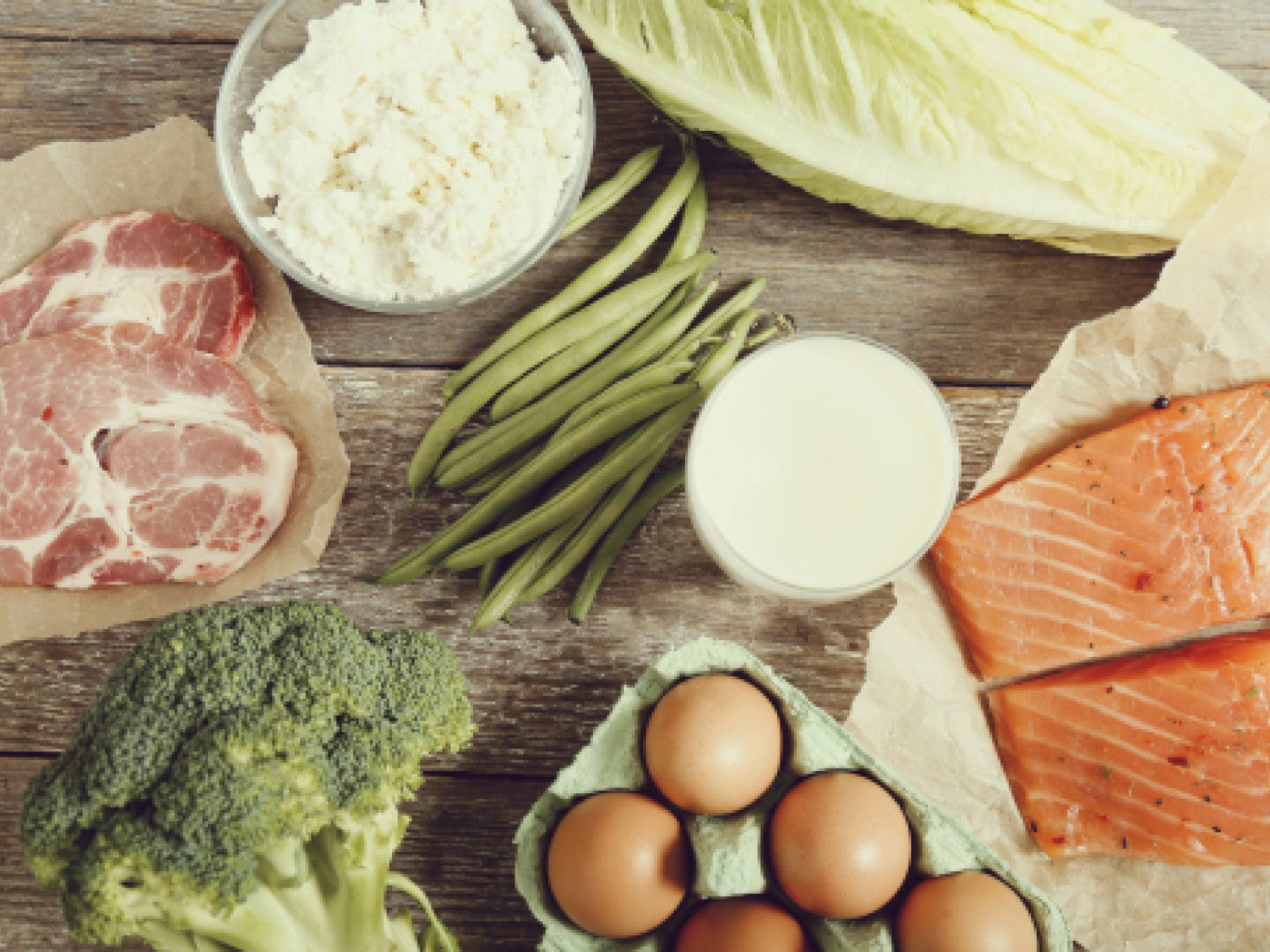Microbiome Diet ~ 2. Animal Products

What is the influence of dietary fat and animal products on your internal microbial ecosystem? What do we know from literature and science, and how can we translate these concepts into real actions and consumption habits?
This is part 2 of the articles on Microbiome Diet. Read part 1 here: Microbiome diet 1: Fiber and part 3 here: Microbiome Diet 3: Boosting the Good Guys.
Omega-3 Fatty Acids
The quantity and quality of dietary fat influence the gut microbiome composition. To understand how fats differ, we need to take a quick look at the chemistry.
Fats molecules are essentially carbon atoms stringed together in chains. Depending on the number of hydrogen atoms per atom of carbon, the dietary fat molecules can be divided into:
- saturated (SFAs)
- monounsaturated (MUFAs)
- and polyunsaturated fatty acids (PUFAs).
PUFAs are also called “essential fatty acids” because they cannot be made by the human body. Therefore, they need to be obtained from the diet. Omega-3 fatty acids are one well-studied example of PUFAs.
Although the exact science on this topic is still in its early stages, there seems to be a strong link between omega-3 fatty acids, anti-inflammatory effects, and immune response. Supplementation with omega-3 PUFAs has shown positive effects in diverse conditions, such as cardiovascular diseases, rheumatoid arthritis, inflammatory bowel disease (IBD), depression, and cancer.
It was demonstrated that omega-3 PUFAs, especially found in fatty fish, increase the production of anti-inflammatory compounds, such as the short-chain fatty acid butyrate. They modulate intestinal immune tolerance and serve to maintain beneficial gut microbiota. They contribute to a healthy microbiome composition and may thus reduce intestinal symptoms.
Trimethylamine N-oxide
We couldn’t write this blog post without talking about Trimethylamine N-oxide or, in short, TMAO. Specific microbes are able to convert dietary choline, betaine, and L-carnitine to trimethylamine which our livers then turn into TMAO to be excreted in our urine.
Multiple scientific studies have established a strong connection between high TMAO levels in the blood and the risk of severe cardiovascular events such as stroke and myocardial infarction.
A potent source of dietary choline and L-carnitine is red meat, but eggs, shellfish and other meat products are also rich in these compounds. The microbiome, reinforced by an omnivorous diet, thus plays an essential role in the risk of cardiovascular diseases.
So, how can we reduce the production of TMAO while increasing our intake of PUFAs?
1. Fish
Fish is a known source of omega-3 fatty acids. However, it is also a source of TMAO and often contaminated with heavy metals, chiefly in the form of methylmercury. If you like fish then consuming at most 3 servings of fatty fish per week represents a reasonable guideline.
But, an intake of PUFAs can be also achieved by consuming vegetarian and vegan sources of omega-3 fatty acids, such as:
- Seaweed and algae
- Chia seeds
- Hemp seeds
- Flaxseeds
- Walnuts
- Edamame
- Kidney Beans
- Soybean Oil
2. Meat
The consumption of animal products is associated with negative effects on the gut microbiome and, as mentioned above, an increase in blood levels of TMAO. Animal products such as meat and eggs also tend to contain high amounts of saturated fats, which by themselves contribute to a risk of cardiovascular disease.
Furthermore, studies have shown an increase between meat consumption, total fat intake, and the overgrowth of species that normally live in the upper gastrointestinal tract. This type of abnormal colonization has been found in several intestinal conditions, such as IBD, colon cancer, and cirrhosis as well as in people with arthritis and multiple sclerosis.
Therefore, we advise reducing the consumption of animal-based products to a minimum. We recommend that if you do eat meat, you choose different sources such as white meat, red meat and eggs. In total, we recommend 2-4 servings of animal products per week and at most 1-2 servings of red meat.
3. Dairy
Whether the fat content of dairy products has an impact on the gut microbiome (e.g. full fat vs low fat) remains unclear. The majority of current dietary guidelines still focus on low-fat dairy products, but this is not entirely supported by the existing literature and further studies are needed to better understand the broader impacts of dairy fat on the organisms within you.
However, dairy products like milk, yoghurt and kefir not only contain lots of different nutrients but also probiotic bacteria that have been shown to modulate the gut microbiome, for instance, by increasing the abundance of Lactobacillus and Bifidobacterium. Some studies even indicate that yoghurt consumption can be protective against pathogenic bacterial strains such as Bacteroides fragilis and Salmonella typhi.
We recommend the consumption of dairy products in moderation, with the aim of adding diversity to your diet. 2 servings daily of unsweetened fermented milk products like natural yoghurt or cheese is our current recommendation.
Conclusion
The quality and quantity of dietary fats have an impact on the composition of your gut microbiome. Especially, Omega-3 PUFAs contribute to the production of anti-inflammatory compounds. Some types of dairy products may benefit the body in ways that are independent of their fat content.
Milk, yoghurt, and kefir consumption, for instance, appeared to increase Lactobacillus and Bifidobacterium, which have been associated with improved host health.
Animal products such as meat and eggs also tend to contain high amounts of saturated fats, which contribute to a risk of cardiovascular disease. In addition, the consumption of animal products is associated with negative effects on the gut microbiome and increased blood levels of TMAO.
Hence, we advise focusing your diet on plant-based products while reducing the consumption of animal-based products to a minimum.
Author: Cecilia Clausen (Clinical Dietitian)
